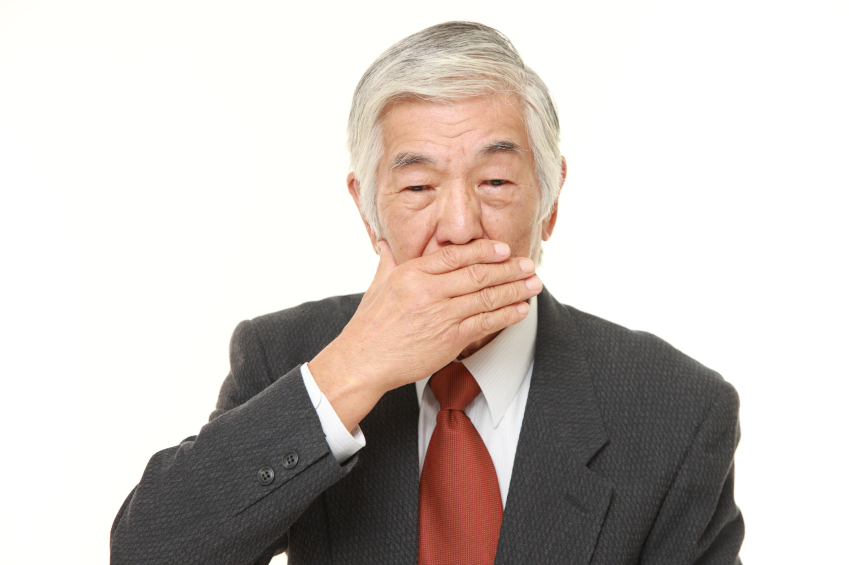It can be difficult to know if you have bad breath, few people are brave enough to tell you other than your dentist or doctor but halitosis can not only contribute to heart disease, it may be a symptom of underlying health problems.
Older people are more likely to develop bad breath due to dry mouth, gum disease or other age-related health problems. In some cases mouth odor can be a sign of diabetes, lung cancer, throat cancer or liver disease. Bad breath can also signal a sinus infection or be caused by acid reflux. People who experience sleep apnea are more likely to have bad breath from sleeping with their mouth open at night, leading to dry mouth (a common cause of bad breath).
Most often, halitosis is caused by bacterial growth in the mouth. Regular brushing, flossing and scraping the tongue can help remove bad bacteria and treating dry mouth with rinses can help wash away food particles. Oral care probiotics can also work to keep bacterial levels in balance and breath fresher.
Because elderly people may not have the hand dexterity to brush as well as they once did, an electric toothbrush and daily mouthwash can help prevent bad breath. Choosing foods carefully is also important to keep breath fresh. Onion and garlic particles can linger between teeth causing odor or when absorbed in the bloodstream, their pungent smell can be released through the lungs. Smoking can also cause bad breath which cannot be solved by brushing, the smoke is absorbed into the bloodstream and breathed out through the lungs; the same goes for alcohol consumption.
Tonsils may also be the culprit of bad breath, according to WebMD. They can trap bacteria, food and dead cells, creating tonsil stones in the back of the throat. Gargling with an alcohol-free mouthwash can help loosen these deposits that can give off odorous sulfur compounds.
Seniors should visit the dentist regularly to check for gum disease and tooth decay. Even if you have dentures, it is important to check your oral health with a dentist for possible infection, ulcers or growths. To learn more about bad breath, visit http://www.mouthhealthy.org/en/az-topics/h/halitosis. MouthHealthy is sponsored by the American Dental Association.






Add Your Voice
0 Comments
Join the Discussion